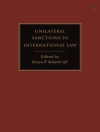This book provides a broad understanding of whether law plays a role in influencing patterns of sustainable consumption and, if so, how. Bringing together legal scholars from the Global South and the Global North, it examines these questions in the context of national, transnational and international law, within single and plural legal systems, and across a range of sector-specific issue areas.
The chapters identify how traditional legal disciplines (e.g. constitutional law, consumer law, public procurement, international public law), sector-related regulation (e.g. energy, water, waste), and legal rules in specific areas (e.g. eco-labelling and packing) engage with the concept of sustainable consumption. A number of the contributions describe this relationship by isolating a national legal system, while others approach it from the vantage point of legal pluralism, exploring the conflicts and convergences of rules between multiple international treaties (or guidelines) and those between the rules of international and transnational law (or both) vis-à-vis national legal systems.
While sustainable consumption is recognised as an important field of interdisciplinary research linking virtually all social science disciplines, legal scholarship, in contrast, has neglected the importance of the field of sustainable consumption to the law. This book fills the gap.
Mục lục
An Introduction to Sustainable Consumption and the Law.- Part I.- Consumer Law and Sustainable Consumption.- International and Transnational Consumer Law on Sustainable Consumption.- Sustainable Consumption and Obsolescence of Consumer Products.- The Shift from Consumer Protection to Consumer Empowerment and the Consequences for Sustainable Consumption.- Sustainable Consumption and Brazilian Consumer Behaviour.- Part II.- Traditional Legal Disciplines and Sustainable Consumption.-The Role of Sustainable Consumption and Disaster Law in Climate Risk Management.- Sustainable Public Procurement in Brazil.- The Preventive Function and Sustainable Consumption: A Creative Challenge for Attorneys.- Taking Care of Business: Engaging Dialogue on Solutions to Unsustainable Commercial Practices.- Consumer Law and Sustainability: The Work of the United Nations.- International Trade in Environmental Goods and Services and Sustainable Production and Consumption.- Part III.- Packaging and (Eco-)Labelling: Beyond the Information Paradigm.- Regulating Green Marketing Claims in the United States.- Collective Valuation of the Common Good Through Consumption: What Is (Un)Lawful in Mandatory Country-of-Origin Labelling of Non-Food Products?.- The Importance of Labelling Food Items: Information, Food Security and Sustainable Consumption.- Tobacco Packaging As a Contribution for Promotion of a Healthy Environment in Brazil.-Part IV.- Sector-Specific Approaches I: Transnational and International Law.- The International Regulation of Living Modified Organisms.- The Effects of International Agreements on Water Security: A Critical Study of the EU and MERCOSUR Approaches.- Sustainable Water Consumption, Foreign Direct Investment and the Human Right to Water.- Building Upon Sustainable Consumption and Production for Food and Apparel.- Supermarkets and Private Standards of Sustainability: The Responsibility to Protect Without Protectionism.- Part V.- Sector-Specific Approaches II: National Law.- Reasonable Credit in Canada: An Attempt to Avoid Over-Indebtedness.- Homes or i Phones? Diversion of Social Security Funds to Relieve Consumption-Fuelled Household Debt in Brazil.- Auction Design to Procure Energy Efficiency Measures as Distributed Energy Resources.- Consumer Law, Sustainable Energy Consumption and Mini- and Microgrid Decentralized Generation in Brazil.- Planned Obsolescence Resulting from Electrical and Electronic Equipment: Waste Rights and Brazil’s National Solid Waste Policy.- Potential Legal Avenues for Managing the Environmental Risks of Nanotechnology.- Looking Back to Look Forward: A Future Research Agenda for Sustainable Consumption, Law and Development.
Giới thiệu về tác giả
Alberto do Amaral Júnior, University of São Paulo, Faculty of Law, Brazil
Lucila de Almeida, University of Helsinki, Faculty of Law and Helsinki Institute of Sustainability Science (HELSUS), Finland; and European University Institute, Robert Schuman Centre for Advanced Studies, Florence School of Regulation, Italy
Luciane Klein Vieira, University of the Rio dos Sinos Valley (UNISINOS), Faculty of Law, Brazil; and University of Buenos Aires, Faculty of Law, Argentina












